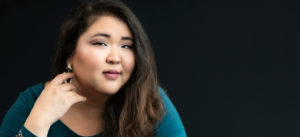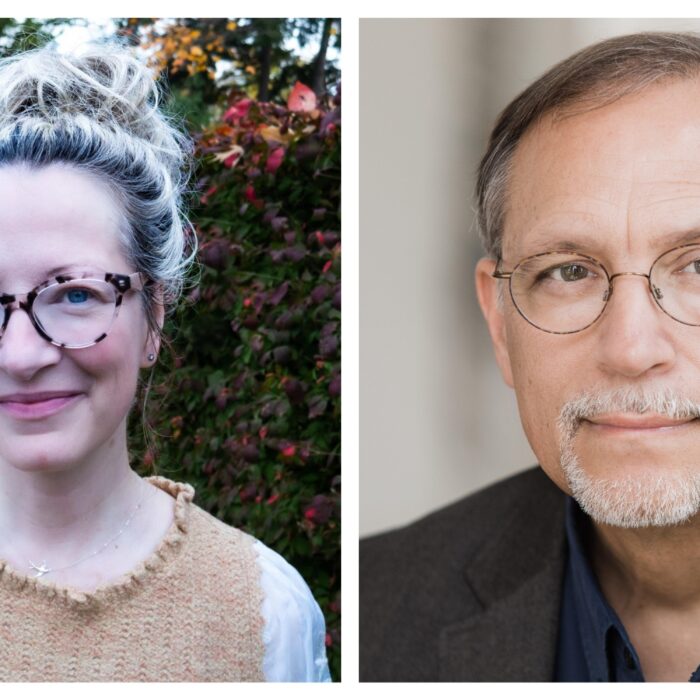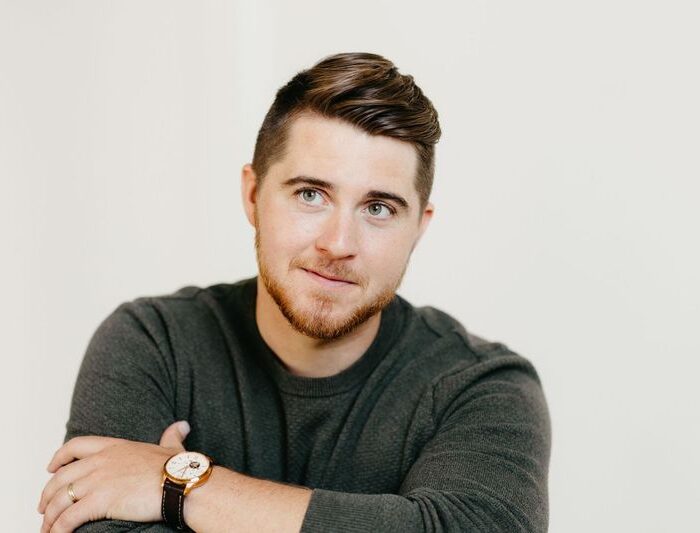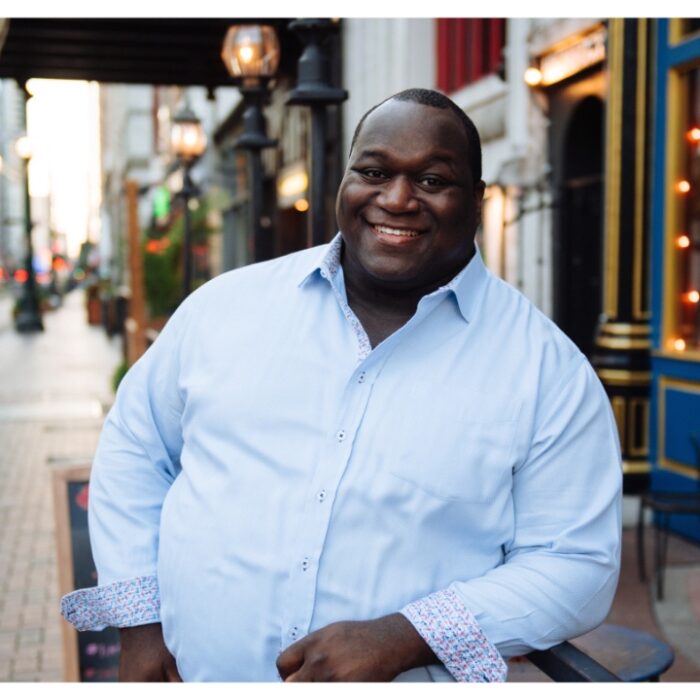
Q & A: Alice Chung on MARLI, Wear Yellow Proudly & Change In Opera
By Francisco Salazar(Credit: Courtesy of Music Academy of the West)
Back in April the Music Academy of the West in Santa Barbara cancelled the in-person part of its summer program. As a result, it put all of its resources into building a high-quality online program for the summer called MARLI (Music Academy Remote Learning Institute). The program provided quality technology and training to each Fellow – including a mic and a tablet – so that everyone could be on equal footing, regardless of wherever they were in the world.
One the fellows in this year’s program was Alice Chung, a mezzo-soprano who has been honored with awards at the Gerda Lissner Lieder/Song Competition, Orpheus Vocal Competition, Pasadena Opera Guild, Chautauqua Opera Guild, and the Metropolitan National Council Auditions. Chung has performed with the Tulsa Opera, Academy of Vocal Arts, and is a 2017 and 2019 alumnus of the Merola Opera Program where she has garnered attention.
Chung spoke to OperaWire about her MARLI experience, performing virtually, Wearing Yellow Proudly and equality in opera.
OperaWire: What was the experience in the MARLI (Music Academy Remote Learning Institute) program?
Alice Chung: MARLI has been nothing short of inspirational and thought-provoking. I was impressed with how quickly they were able to create a program that all of us stuck at home could do. I was worried that I wouldn’t have a summer with the training and education I was ready to have. But not only did MARLI try to provide that in the best way possible but they also responded to everything that was going on from Black Lives Matter to COVID with incisive industry talks.
It was very refreshing because so many people in our industry get so careful and they walk on eggshells. But MARLI brought in speakers that were inspiring and talked about how we should shape ourselves as artists, not just someone with an instrument. To me, that was very refreshing and authentic and it was beyond the scope of your typical training and education. It gave me the whole package.
OW: This program was supposed to be in person. Tell me what the experience was like doing it online and what were some of the biggest adjustments?
AC: MARLI was very generous in that they offered tech bundles for those who did not have the technology and they even offered to find better internet packages if you were not in an urban situation. They were understanding and they taught us how to use the technology for the classical instrument and voice.
The biggest challenge, however, was the lack of live musical collaboration. Simply put, there is a lag in online communication and what we can do with online communication is amazing but not the same as being in person. It will never be replaced and I think the inability to share performances in person is the biggest challenge.
I got to meet my fellows a lot more than I expected but I believe that one of the features of live theater is the energy that is created and shared between the performers and the audience. You just create something magical. It’s indescribable.
I was watching “Hamilton” for the first time and it was truly amazing and it still didn’t have that live theater element. It was missing that that live energy. But I am blessed to have had this experience that set me up for whatever the new normal will be for at least a while. But the advantage is that we started it in the spring and it gave us the time and space to revisit the time and space and relationship that opera has with technology.
OW: What do you think is the biggest challenge of singing for a camera and what did you learn from the experience?
AC: For me, no matter whatever microphone you use, without the help of the acoustics of a big hall, it doesn’t capture all the overtones or depending on the situation, it doesn’t capture your full voice. I will say that my voice did not get captured entirely when I was working with the microphone. The size and the overtones of the voice were not complete. It might be harder for other people as well and that is why pop singers do so well in recording studios. They don’t have to amplify from the body. They already have the microphone they are working with. We are working with a compressor of the voice. So I would say we have to work with our instruments in the best way. And I know that it will be a bit harder to create audition videos for this upcoming audition and competition season.
Working in front of a camera is also a challenge because you don’t have an audience in front of you and the live performance aspect and the energy isn’t created. But I will say that I have to give credit to people behind the camera and those in front of it because we are expected to bring the energy.
When we were making the little homage thing for “Hansel and Gretel” and I was doing the witch, I was embodying her as a whole. I simply couldn’t just sing it. That was a lot of fun and despite the track in my ear and being the only person in the room, it was magical to see the end product.
It was weird but thinking about the entire process of making opera, we singers are alone at the beginning when we rehearse. And the audience pays to live through these larger than life characters so we have to give it our all.
Another thing I find challenging is I feel like the pressure of looking better was greater because the camera captures so much. I think you see that in the Met HDs and they get so up close and it’s amazing to see so many expressions. But I learned that my facial muscles are not as strong as some other people’s. My skin is also tauter and I have to work a little harder. Working with the camera we also have to work on our expression and how we look and try to find that good angle. We have to find that right spot from how far away you are from the camera. You also have to find a great location for acoustics. All these of these things are so important.
OW: Do you think the audience is completely in it when they are watching something online? How does it affect your performance?
AC: It depends on how it is done. For example, in the recital, the singers are the main focus and each piece is its own beautiful piece. You can still feel the sheer beauty of the high note or the low note in the music. I also think that the artist’s commitment still pulls through but that fraction at the end is still important. That is why live music is so crucial.
OW: You are a woman of body and of color. What are some of the major challenges you have faced in your young career?
AC: I am fortunate that all the programs and companies that I have worked with have championed me. They have supported me no matter the color of my skin, ethnicity, or body size. I have received comments that I should look a certain way because they want so much for me. I have also received comments that I should lose some pounds because if I don’t. Companies won’t consider me for roles like “Carmen” or the quintessential sexy roles. It was okay with me for a while and then I realized that I can’t help what will happen on the other side. I am comfortable to a certain degree in my own skin because I think we all feel some type of insecurity.
But I also don’t like that when you go into a room and you are a bigger person, people question whether or not you can run around the stage. They question whether you will be tired. But people forget that how you look is not proportionate to your fitness level. I know I can run around as the witch as long as the conductor lets me breathe.
I was always told that being an Asian and a person of color who cannot assimilate or look like the majority of the society, we need to do better. As a person of color, we already have a point taken off. So if you are going to be a person of color, you have to make up for what you can’t be. So being a person of body and person of color is already two notches down.
As I noted, I am grateful to have worked with companies and programs that have seen me beyond my size and my color. They saw me for who I am. I don’t blame the opera industry for it.
It is our society and we have been so about what fashion looks like. But thankfully we’re becoming more body positive these days.
OW: During your time at MARLI you worked in Fast Pitch program. Your project was “Advocacy through Preservation & Innovation: Bridging Korean Folk Songs & Classical Music.” Tell me about how the project came about? What inspired you to want to tackle this?
AC: Fast Pitch is essentially a platform to pitch your idea within a time frame and its for all classical musicians through the Music Academy of the West and this year was MARLI. The beautiful thing is that classical musicians are so devoted to our art and technique and getting the energy to act and perform but more and more we need to think a little more businesslike. We need to worry about the entrepreneur aspect.
Fast Pitch is a platform where you can work on the entrepreneur’s mind and come up with creative and innovative ideas. I used the idea of performing Korean songs in a classical music space and while I didn’t win I was a finalist and I was glad to be given the platform to share my ideas. It set me up to be able to develop this idea much more and we were given the professional development to help with that.
OW: What did you learn most about being an entrepreneur as a singer?
AC: I believe that we all have a sense of self-marketing and marketing ourselves in terms of having a website and the PR marketing material like a bio or a headshot but not a lot of training programs teach you what to do beyond that. And how to be more than just an artist. MARLI brought in a guest speakers who created opportunities for themselves and that was fantastic because you saw that you could do a lot more and partner and can have independent projects going on while still being an artist.
For some reason, I always thought I had to focus my entire time on being an artist which isn’t true and isn’t not true. But being an entrepreneur helps you sell yourself and get your name out there. You are also able to do the work that you’re passionate about and find avenues of creation on a different level for what you do on a big stage.
What you’re hired to do in the industry is amazing because it expands awareness and it can also go into different territory and different industries. But you can also bring people to the opera and classical music industry and many people can make music more accessible.
For bigger companies, it’s not as easy to do because they have main stage productions and a young artist program and occasional concerts. But individually, you can do a lot more because you are reaching out. Everyone has a platform nowadays and a way to reach a new audience, whether through YouTube or teaching inner-city kids and giving free lessons. By doing that it will expand your reach and not put opera in the dying artform.
You’ll also get more people of color and you’ll have a wider variety to cast from and have different stories to tell. Ultimately it will give more opportunities.
OW: You are one of the founders of Wear Yellow Proudly. Tell me about the initiative?
AC: Wear Yellow Proudly was founded by me and some of my colleagues through its parent organization Aural Compass Projects and it was founded because of the rising xenophobia and violence against Asians due to the onset of the COVID-19 pandemic. Since we are a combination of an arts organization and activism, we have hope because we feel art always brings us together. We have different opinions but we all believe that music is a language that we all understand and can communicate through. It’s not only through opera that we are attempting to communicate. It is through classical music and through people’s skills that are also art.
It is an arts and culture organization. We’ve had talks like the “Asian and Black solidarity talk” and the “Arts edition.” It is now a little over three months old and we’ll be working with the Cincinnati Song Initiative and we’ll also be doing different programs as well. We will communicate about identity and what I think sets Wear Yellow Proudly apart from all the other great organizations is that we are trying to communicate with all our allies and build a stronger allyship. We need to learn from the other movements so that we don’t exclude anyone. We want to raise awareness and bring people globally. In the end, we should celebrate our differences.
OW: “Madama Butterfly” is one of the operas that has been discussed for its use of of yellow face. What do you feel about this practice and do you believe only Asians should perform the role as some have been suggesting?
AC: Wear Yellow Proudly and I believe that it’s not about limiting non-people of color from doing Butterfly. It is really about the industry and the company’s casting directors and hiring staff to be responsible and color-conscious. We are not asking someone to forgo the talent at all. That’s not why we’re here. The questions we are asking is “have you actually looked for an Asian soprano to sing Butterfly? There are plenty. We don’t want to limit anyone from doing something because Butterfly is written by Puccini and in many ways, Butterfly after Act one is an Italian woman. The way she reacts to things is more Italian than Japanese. The way Puccini wrote her character is very Italian and we also don’t want Asians to be Italian.
It’s about having the responsibility and making sure that company’s searched for that Asian or that person of color. It’s about being color-conscious. If we were going with the race of the character than I can’t sing most roles. It doesn’t make sense for me to be in the opera industry. Look at Leontyne Price. She sang “Trovatore” in a time when the N-word was still okay and yet she was given so many opportunities to sing roles that were obviously not African American roles. You don’t want to limit the palette.
In regards to changing features, I think everyone is on a spectrum with where they are with certain things whether it’s blackface or yellowface. What I care about is that people do things tastefully and that you do it with respect and you do it with someone with a lot of talent. I would prefer to lose a casting opportunity if another person was better than in me in talent.
OW: What do you look forward to in the coming years as you grow as an artist?
AC: I want to succeed but that is defined differently for everyone. For me, if I could be in this career and essentially spread the beauty of music, enjoy it, and be able to survive, I would be happy. It would be a lot to ask and that is what I want in terms of career. What I hope is that this industry has more understanding.
I want more understanding of humanity because there has been so much violence. I want people to be more compassionate whether it is in this industry or not. What we do is so vulnerable and we are looking to be supportive of one another. That is why music is such an important language. I want to spread the word of compassion through my art form and of course, also be able to be myself. I would be a happy camper.


